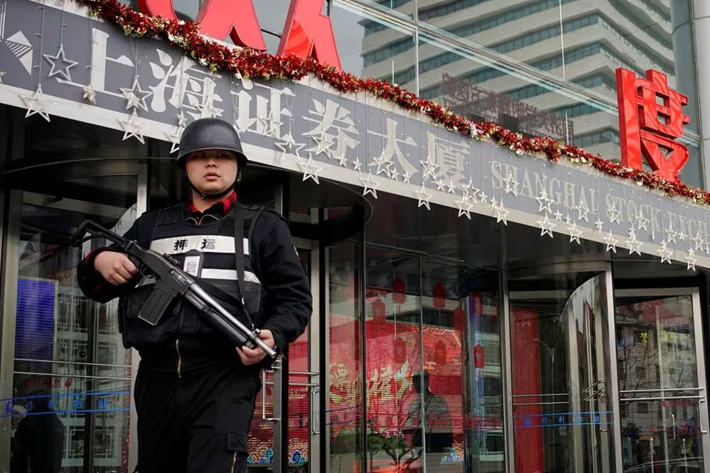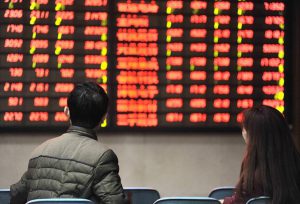Investors in China have poured billions into exchange-traded funds (ETFs) this year — at the fastest pace on record — amid a market slowdown that has put active investing on the backseat.
ETFs in China have raked in more than 400 billion yuan ($55.97 billion) this year setting a record for annual net inflows, according to mutual fund house China Asset Management Co (ChinaAMC).
In contrast, active equity and allocation funds have suffered net outflows of roughly 360 billion yuan, as investors “have been looking for better value propositions in ETFs,” Morningstar senior analyst Andy Huang said.
Also on AF: Big Shareholders ‘Stopped From Selling Beijing Exchange Stocks’
“When the market falls, many investors would use ETFs to bet on a bottom,” Xu Meng, executive general manager of quantitative investment at ChinaAMC, said.
ChinaAMC, which emulates global ETF giants Vanguard and BlackRock iShares, has the biggest market share in ETF products.
The ETF boom has caught on as active fund managers in China struggle to make money.
An index tracking China’s active equity funds has slumped roughly 12% so far this year as the country’s post-pandemic economic recovery struggles for traction.
That compares with a 1.9% fall in the benchmark Shanghai Composite Index.
Passive investing gains pace
“I have been gradually exiting active funds, and swapping into ETFs,” said retail investor Simon Zhang, who was disillusioned by active fund managers’ underperformance.
Total assets under management (AUM) at China’s stock ETFs jumped 33% during the January to September period to 1.48 trillion yuan (around $209 billion).
Meanwhile, active equity funds’ AUM dropped 13% to 3.9 trillion yuan, according to fund consultancy Z-Ben Advisors.
Since beating the market in China is getting increasingly tough, “passive investment will likely outpace active investment in China over the next three to five years at least”, ChinaAMC’s Xu said.
With the popularity of ETFs is set to rise, ChinaAMC’s Xu said the sector has room to grow.
Competition in the market remains fierce, however, with more than 50 ETF players such as E Fund Management Co and Huatai-PineBridge Investments.
Beijing’s tech push driving ETF boom
The popularity of ETFs has also risen as Beijing uses the funds to support stock markets and channel funding into strategic sectors such as technology and green energy.
In late October, China’s sovereign wealth fund Central Huijin Investment started buying blue-chip ETFs to stabilise the wobbly stock market.
Ben Charoenwong, assistant professor of finance at the National University of Singapore (NUS) Business School, said China can also use ETFs to channel money into innovative and small companies that “may be deprived of crucial capital to survive” in a sluggish economy.
Last week, Shanghai Stock Exchange head Cai Jianchun told an ETF forum that indexes are the “baton” of money flows, and index investing must better serve the central government’s quest for technological independence.
In testament to such efforts, funds tracking China’s tech-focused STAR50 index have exceeded 145 billion yuan. Money being funnelled into state-owned sectors via ETFs has also jumped, the bourse said.
- Reuters, with additional editing by Vishakha Saxena
Also read:
China Restricts Securities Lending in Short-Selling Clampdown
China Curbs Brokerage Accounts in Bid to Stop Capital Outflows
China’s Move to Slow Down IPOs May Backfire on Frail Economy
Chinese Investors Ploughing Into Foreign Assets Via ETFs, QDII Scheme
Israel-Hamas War Casts Long Shadow Over China’s BRI Stocks
Hedge Funds Dump China Stocks Over Property, US Tech War Worry
























